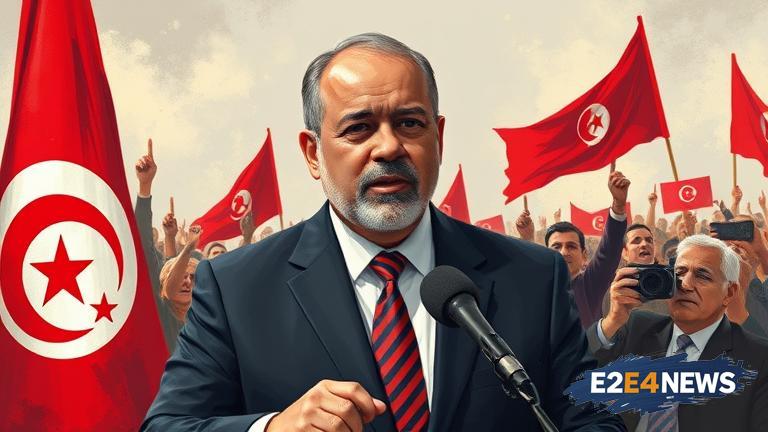Tunisian President Kais Saied has announced a comprehensive package of reforms designed to tackle the nation’s deep-seated economic and political issues. The reforms, which were unveiled in a televised address, are intended to restore stability and confidence in the government. The president’s move comes amidst ongoing protests and demonstrations, which have been taking place across the country for several weeks. The protests, which have been largely peaceful, have been driven by widespread discontent with the government’s handling of the economy and corruption. The reforms announced by President Saied include a range of measures aimed at reducing corruption, improving transparency, and promoting economic growth. One of the key reforms is the establishment of a new anti-corruption agency, which will be tasked with investigating and prosecuting cases of corruption. The president has also announced plans to introduce new laws and regulations aimed at promoting transparency and accountability in government. Additionally, the government has pledged to implement a range of economic reforms, including measures to reduce the budget deficit and promote private sector growth. The president has also announced plans to increase investment in key sectors such as education and healthcare. The reforms have been welcomed by many Tunisians, who see them as a positive step towards addressing the country’s challenges. However, some critics have expressed skepticism about the government’s ability to implement the reforms effectively. The protests, which have been organized by a range of civil society groups and opposition parties, have been calling for more fundamental changes to the political system. The protesters have been demanding the resignation of the government and the establishment of a new, more representative political system. The situation remains volatile, with protests and demonstrations continuing to take place across the country. The international community has been watching the situation in Tunisia with concern, with many countries and organizations calling for calm and restraint. The United States, the European Union, and other international partners have expressed support for the Tunisian people’s right to peaceful protest and have urged the government to engage in dialogue with the opposition. The African Union has also issued a statement calling for calm and restraint, and urging the government to take steps to address the underlying causes of the protests. The situation in Tunisia is complex and multifaceted, with a range of different factors contributing to the unrest. The country has been facing significant economic challenges, including high unemployment and a large budget deficit. The government has also been criticized for its handling of corruption, with many Tunisians believing that the government is not doing enough to tackle the problem. The protests have been driven by a range of different groups, including civil society organizations, opposition parties, and ordinary citizens. The government has responded to the protests with a range of measures, including the deployment of security forces and the imposition of curfews. However, the situation remains volatile, with protests and demonstrations continuing to take place across the country. The international community is continuing to monitor the situation closely, with many countries and organizations calling for calm and restraint. The United Nations has issued a statement calling for dialogue and urging the government to take steps to address the underlying causes of the protests. The situation in Tunisia is a reminder of the ongoing challenges faced by many countries in the region, where economic and political instability are common. The country’s experience is a testament to the importance of good governance, transparency, and accountability in promoting stability and prosperity. The reforms announced by President Saied are a positive step towards addressing the country’s challenges, but much work remains to be done to restore stability and confidence in the government.
